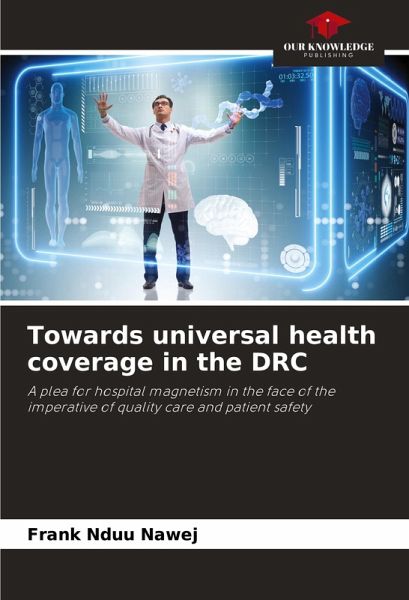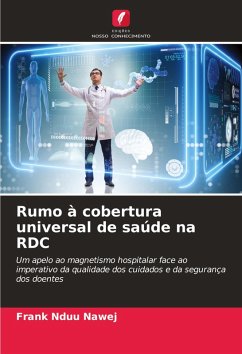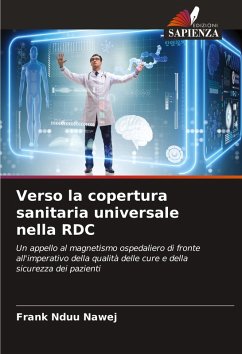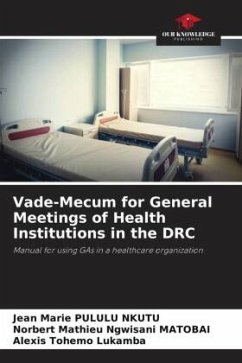
Towards universal health coverage in the DRC
A plea for hospital magnetism in the face of the imperative of quality care and patient safety
Versandkostenfrei!
Versandfertig in 6-10 Tagen
29,99 €
inkl. MwSt.

PAYBACK Punkte
15 °P sammeln!
In the Democratic Republic of the Congo and around the world, poor-quality healthcare continues to cause a great deal of harm in terms of morbidity and mortality, as well as colossal financial losses. Known for their role in the provision of quality care and patient safety, human resources for health (HRH) paradoxically benefit from less-than-optimal management, as evidenced by the growing signs of ill-being to which they are exposed and which suggest a poor quality of working life. This, in turn, has a negative impact on the organizational performance of healthcare establishments, resulting i...
In the Democratic Republic of the Congo and around the world, poor-quality healthcare continues to cause a great deal of harm in terms of morbidity and mortality, as well as colossal financial losses. Known for their role in the provision of quality care and patient safety, human resources for health (HRH) paradoxically benefit from less-than-optimal management, as evidenced by the growing signs of ill-being to which they are exposed and which suggest a poor quality of working life. This, in turn, has a negative impact on the organizational performance of healthcare establishments, resulting in poorer quality care. On the other hand, there is abundant evidence of the positive role played by managerial and organizational determinants characteristic of magnet hospitals in ensuring good quality of work life for HHRs, and of the link between the latter and organizational performance. The aim of this study was to contribute to improving the quality of care in our healthcare establishments through the appropriation of magnet hospital practices.














